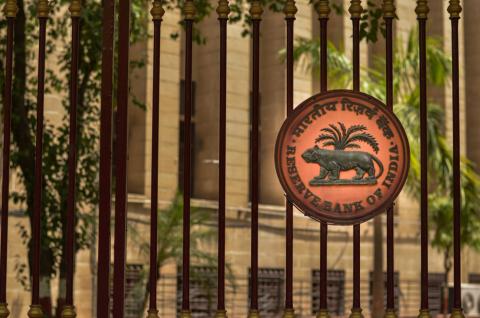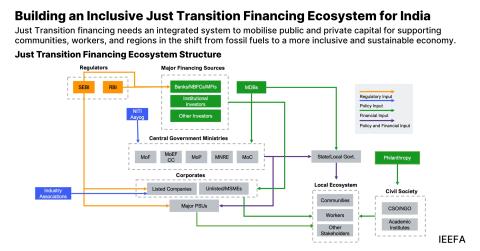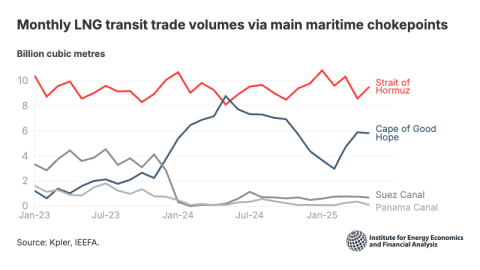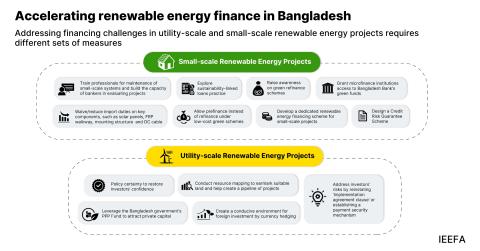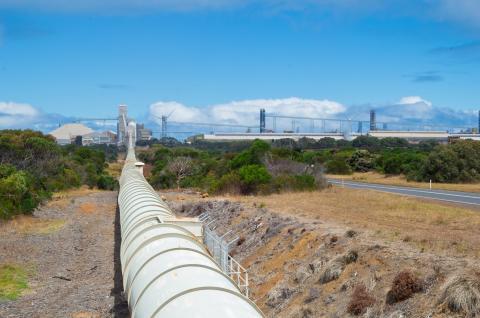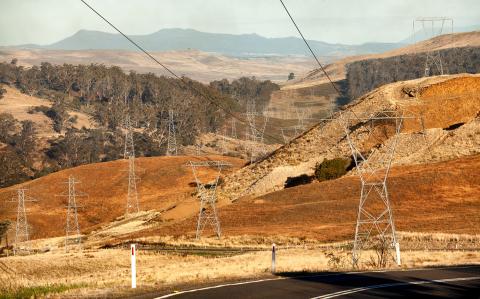IEEFA Update: Reform Opportunity in Puerto Rico Electricity-Contract Scandal
The controversy that has erupted over the mysterious electricity-rebuild award by the Puerto Rico Power Authority (PREPA) to a tiny Montana company has a silver lining: It can trigger a thorough audit of the agency’s contracting processes—something that has never happened in the history of PREPA.
Now, it’s possible that the actual work done by the company in question, Whitefish Energy Holdings, will be good.
PREPA cannot be given the benefit of the doubt, however.
We know from many examples that it has a poor track record on contract management. The official proceedings of the Puerto Rico Energy Commission, which regulates the agency, are replete with examples. Among them are botched contracts for solar-energy delivery and payouts for tens of millions of dollars to financial experts who produced a failed bond deal. PREPA’s practices on its massive oil contracts—worth $1 billion per year — are under scrutiny, as are its underwriting teams.
The circumstances are beyond unfortunate.
One expects the best of people in an emergency situation of the scope and duration that Puerto Rico is suffering. But Governor Ricardo Rosselló and PREPA have stumbled badly on the Whitefish deal, and their stumble is not a good sign. By letting the company announce the contract—rather than making an assertive announcement themselves as a part of the recovery effort—the governor and PREPA look like they are hiding something.
Emergency agreements made in the New York and New Jersey response to 9/11 held up to public scrutiny.
I know from whence I speak. I was a high-ranking official in New York State’s Comptroller’s Office in the aftermath of the 9/11 attack, when the Port Authority of New York and New Jersey, which owned the World Trade Center, issued a number of emergency contracts. The contracts were announced publicly and openly by the governors of New York and New Jersey.
The 9/11 contract issuance was done under stressful conditions and the contracts themselves were carried out under enormously difficult conditions. They ran over budget in some cases, creating public suspicion, so the New York state comptroller, a publicly-elected official with audit authority, conducted a review of the contracts, including how they were issued, how much money was spent, whether the services were provided, and whether the cost overruns were justified.
The comptroller’s office, ahead of its review, had been harshly critical of certain state contracting processes at state authorities, a position that made its review of the 9/11 contracts especially notable. In the end the Port Authority was praised by an independent auditor with a long track record of finding fault with public authorities.
GOVERNOR ROSSELLO’S RESPONSE TO THE PUBLIC CRITICISM OF THE WHITEFISH DEAL, on the other hand, has been to have his own Office of Management and Budget do a review. This is another stumble, because in the world of oversight, the governor’s move can be classified as what accountants refer to as “evasive cooperation.”
The appropriate reviewers in this case would be the Puerto Rico Energy Commission, in consultation with the PROMESA fiscal control board. The commission has oversight over PREPA’s operations and PROMESA is responsible for fiscal stability and capital planning. These entities are better equipped and more independent than a political arm of the governor’s office.
This is a good test for government decision-making in Puerto Rico. The governor has yet to show much trust for the PROMESA board and has made it clear that he would like to put the regulatory commission out of business—largely perhaps in hopes of blocking efforts to audit PREPA’s mishandled contracts for renewable energy. But this is precisely what got Puerto Rico into its current predicament.
The good news is that the Whitefish controversy may force change.
We encourage the governor to handle Puerto Rico’s crisis in a more open and statesman-like fashion than he has so far. He could start by being more publicly present in reporting daily progress on electricity restorations, showing more accountability and in general demonstrating greater solidarity with the people of Puerto Rico, most of whom remain in dire straits more than a month after Hurricane Maria.
If the governor has nothing to hide, an independent review of the Whitefish contract and a real-time audit of expenditures will give his administration some much-needed credibility. Like the public officials under scrutiny in New York and New Jersey for 9/11 contracts were, he may be pleasantly surprised.
Tom Sanzillo is IEEFA’s director of finance.
RELATED POSTS:
IEEFA Update: Puerto Rico Is at an Urgent Energy-Policy Crossroads Now
IEEFA Update: Politics Is the Main Barrier to Solar Energy Independence in Puerto Rico



